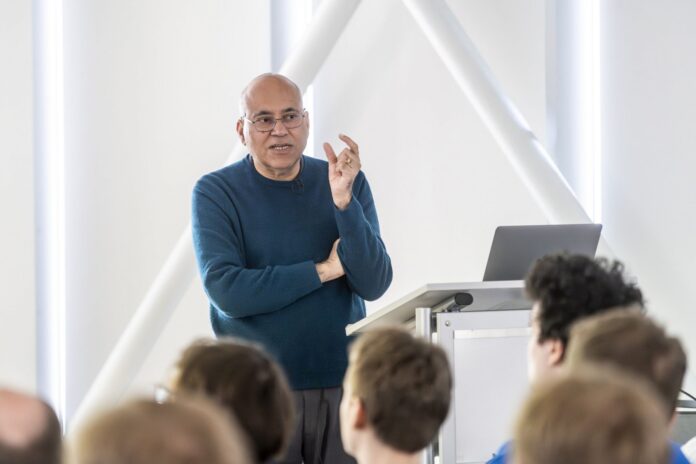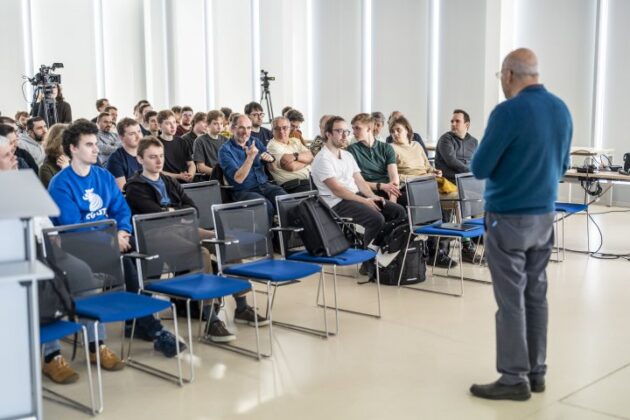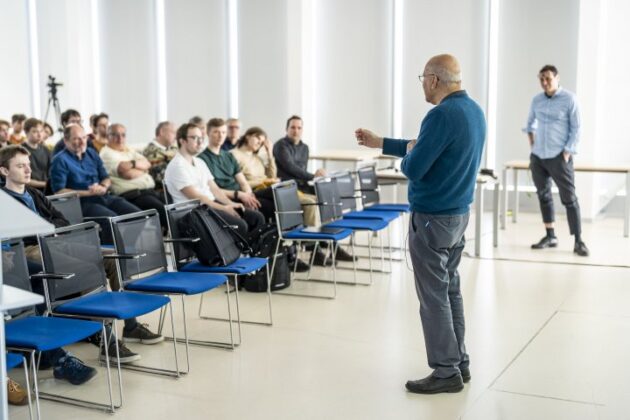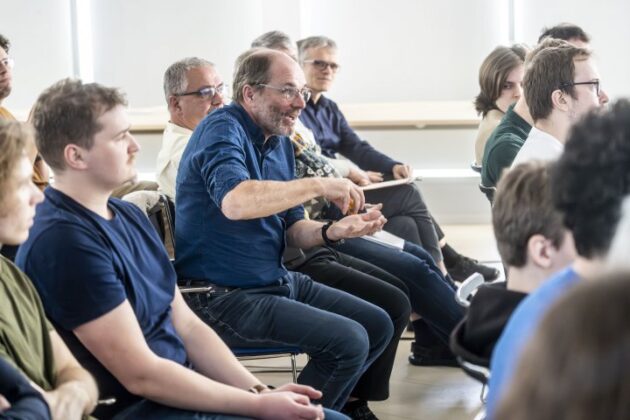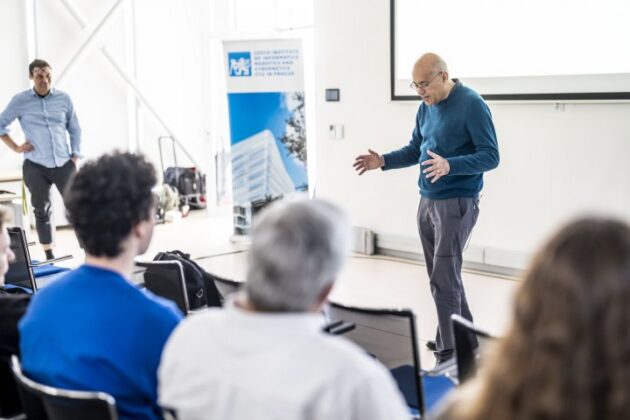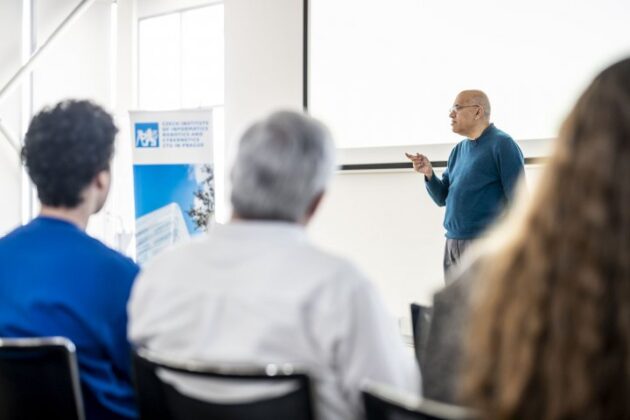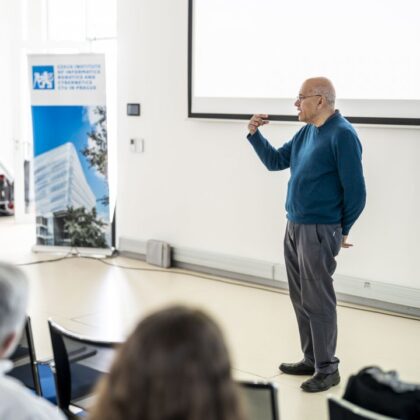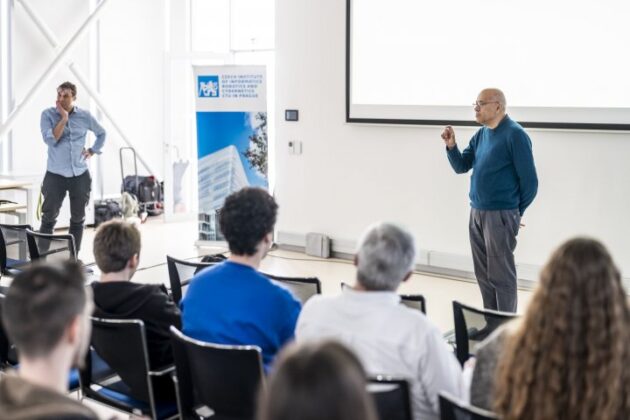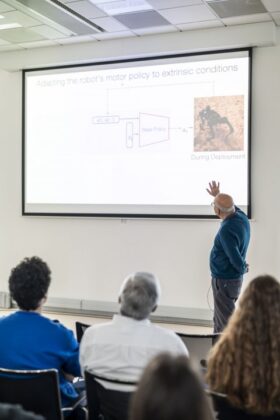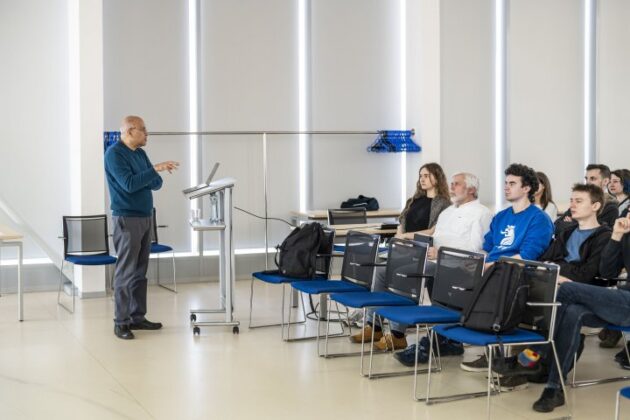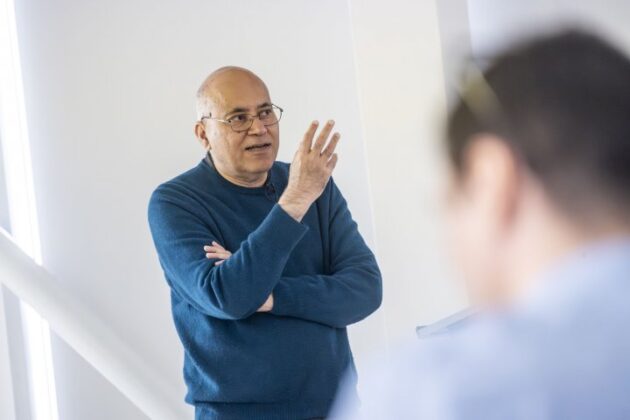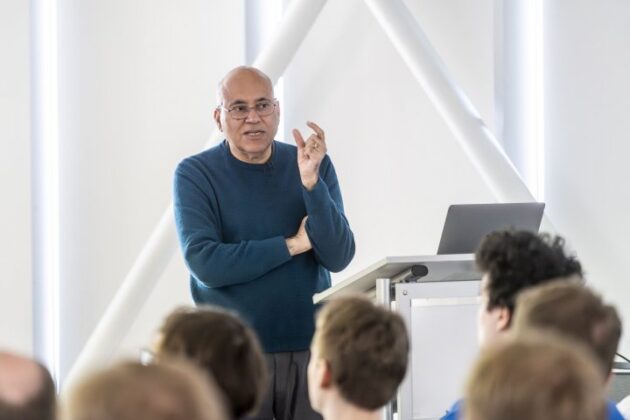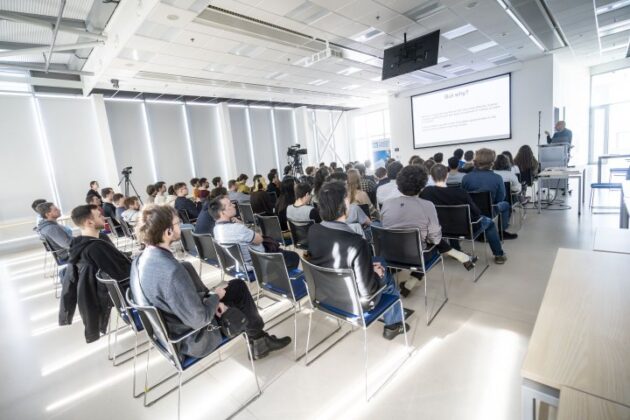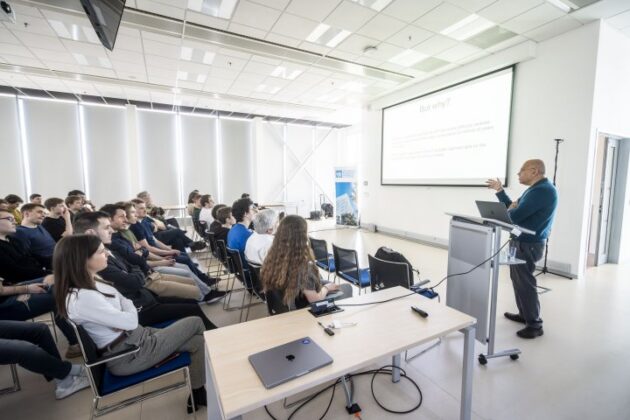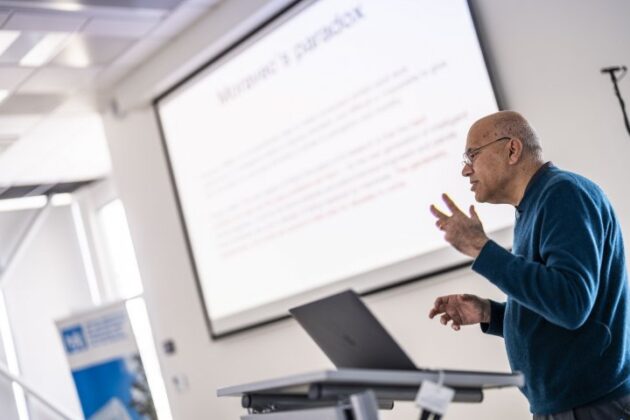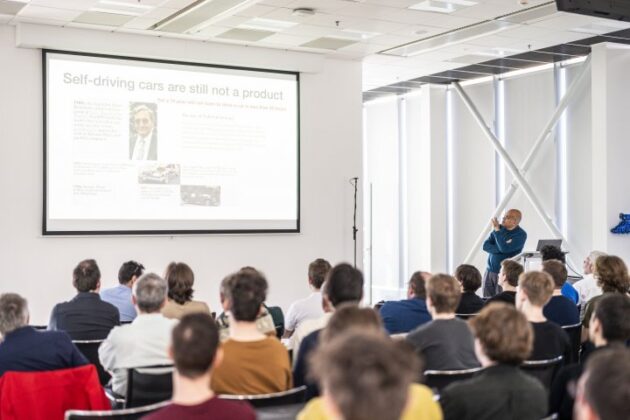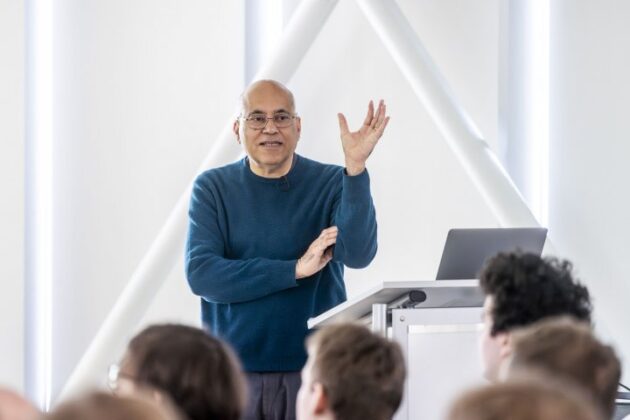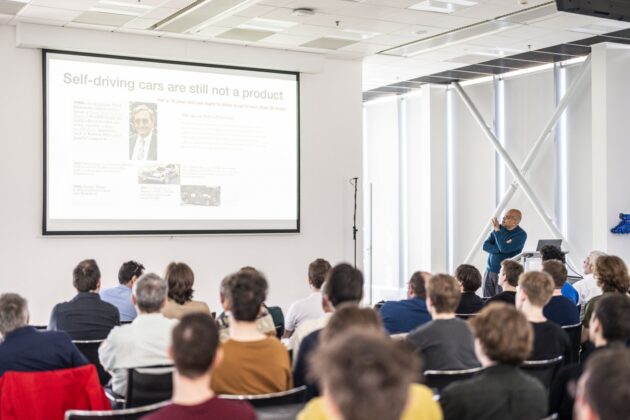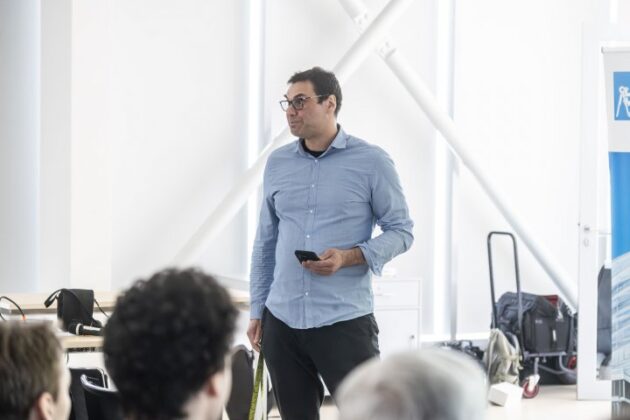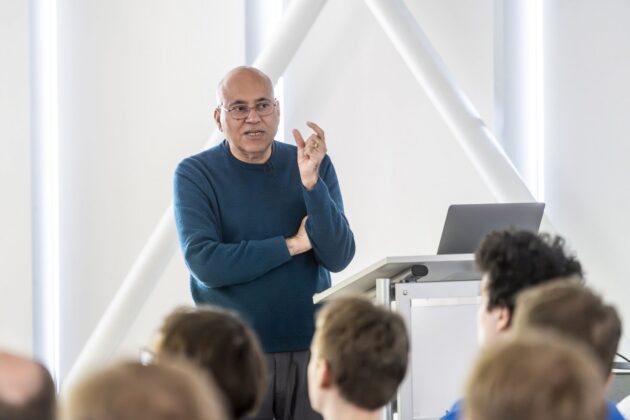In the world of computer science and advanced technology, the name Jitendra Malik is not unknown. This Indian-American academic, the Arthur J. Chick Professor of Electrical Engineering and Computer Science at UC Berkeley, who is also a part-time head of scientific research at Meta, accepted the invitation of Dr. Josef Šivic, holder of the ERC Advanced Grant FRONTIER, and recently visited our institute. His presence was not without reason: Professor Malik gave a lecture on the topic „When we will have intelligent robots?“ and his visit also included a discussion meeting with the IMPACT research team and a tour of the RICAIP Testbed Prague experimental workplace. Mr. Malik’s lecture was the last of the IMPACT series of seminars.
On this occasion, Prof. Malik shared his extensive knowledge and vision for the future of robotics. The main topic was breakthroughs in deep learning and their applications in speech recognition, computer vision, natural language processing, but also in areas such as protein structure prediction.
Professor Malik pointed out that robotics is a particularly challenging discipline as robots must learn from their own experiences in the context of their unique environment, unlike other fields where one can draw on existing data. He highlighted the need to train robots in simulation and then transfer the skills to the real world, as there are no pre-prepared behavioural databases to draw from. He demonstrated the results of his research team’s work by demonstrating several skills such as legged locomotion (quadruped and humanoid), navigation, and dexterous manipulation such as in-hand rotation and twisting caps off bottles.
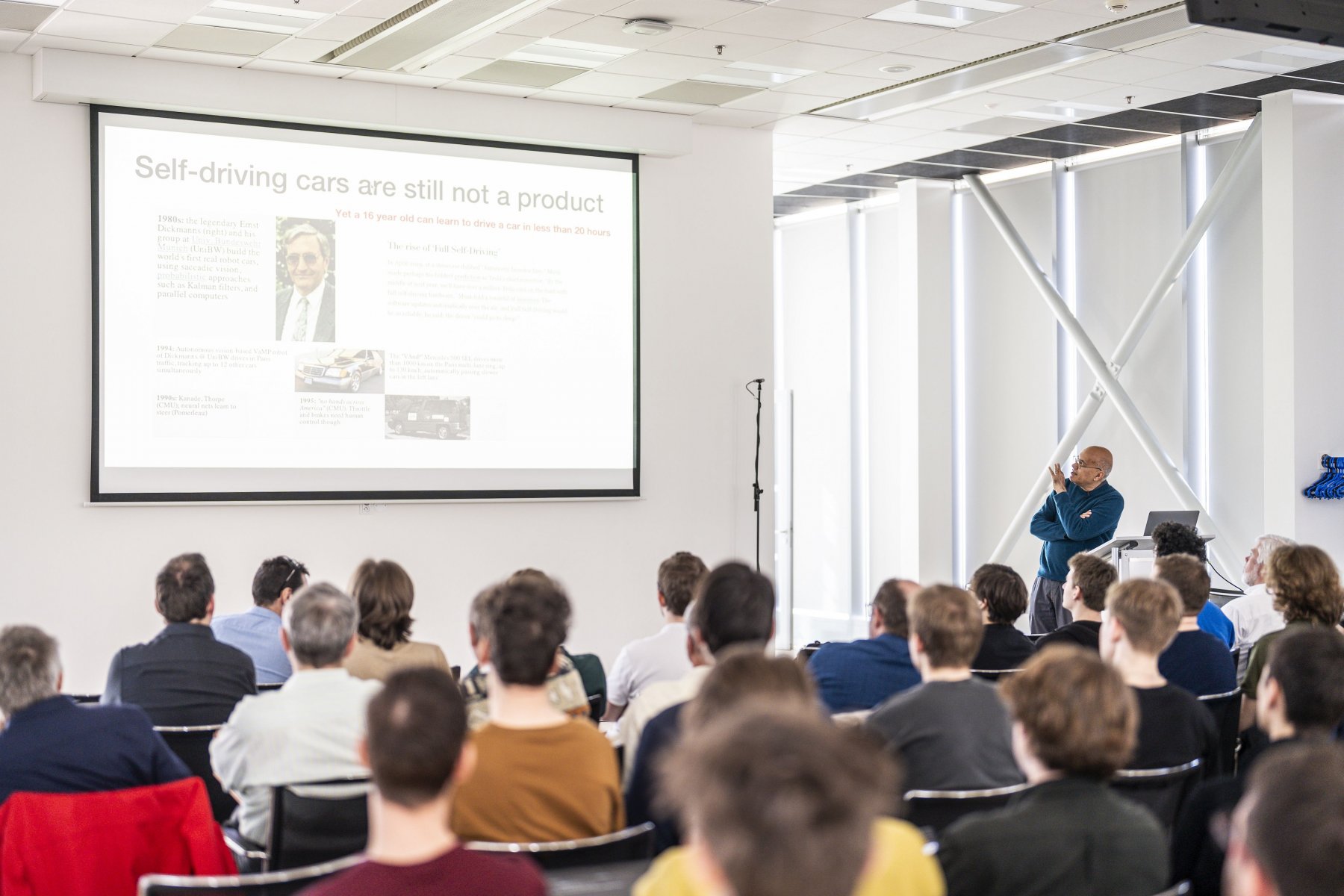
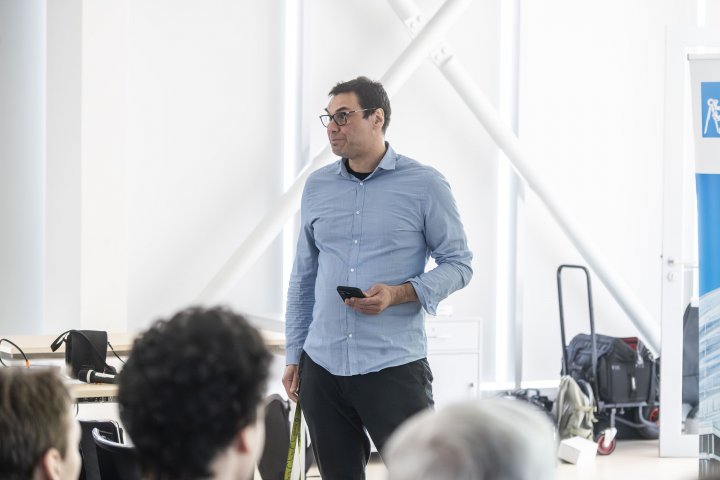
He also mentioned the development of the „Rapid Motor Adaptation“ method, which enables adaptive control of robots in deep learning. Looking to the future, Prof. Malik sees parallels between the development of motor skills in children and robotics, suggesting possible directions for further research.
His research work, which includes anisotropic diffusion, normalized cuts, high dynamic range imaging, shape contexts, and R-CNN, has yielded several important insights and methodologies in computer vision, robotics, and artificial intelligence. This work has earned him several prestigious awards, including the 2013 IEEE PAMI-TC Distinguished Researcher in Computer Vision Award, the 2014 K.S. Fu Prize from the International Association of Pattern Recognition, the 2016 ACM-AAAI Allen Newell Award, the 2018 IJCAI Award for Research Excellence in AI, and the 2019 IEEE Computer Society Computer Pioneer Award.
Prof. Jitendra Malik’s visit to Prague was a great opportunity for Czech scientists and students to gain valuable insights and inspiration for future research. His lecture and discussion offered participants a new perspective on the future of intelligent robots. Visit of prof. Malika in Prague was supported thanks to the ERC Advanced Grant „FRONTIER“ grant project.
Prof. Malik’s entire lecture was recorded and can be viewed HERE:
Whole photogalleery HERE:


